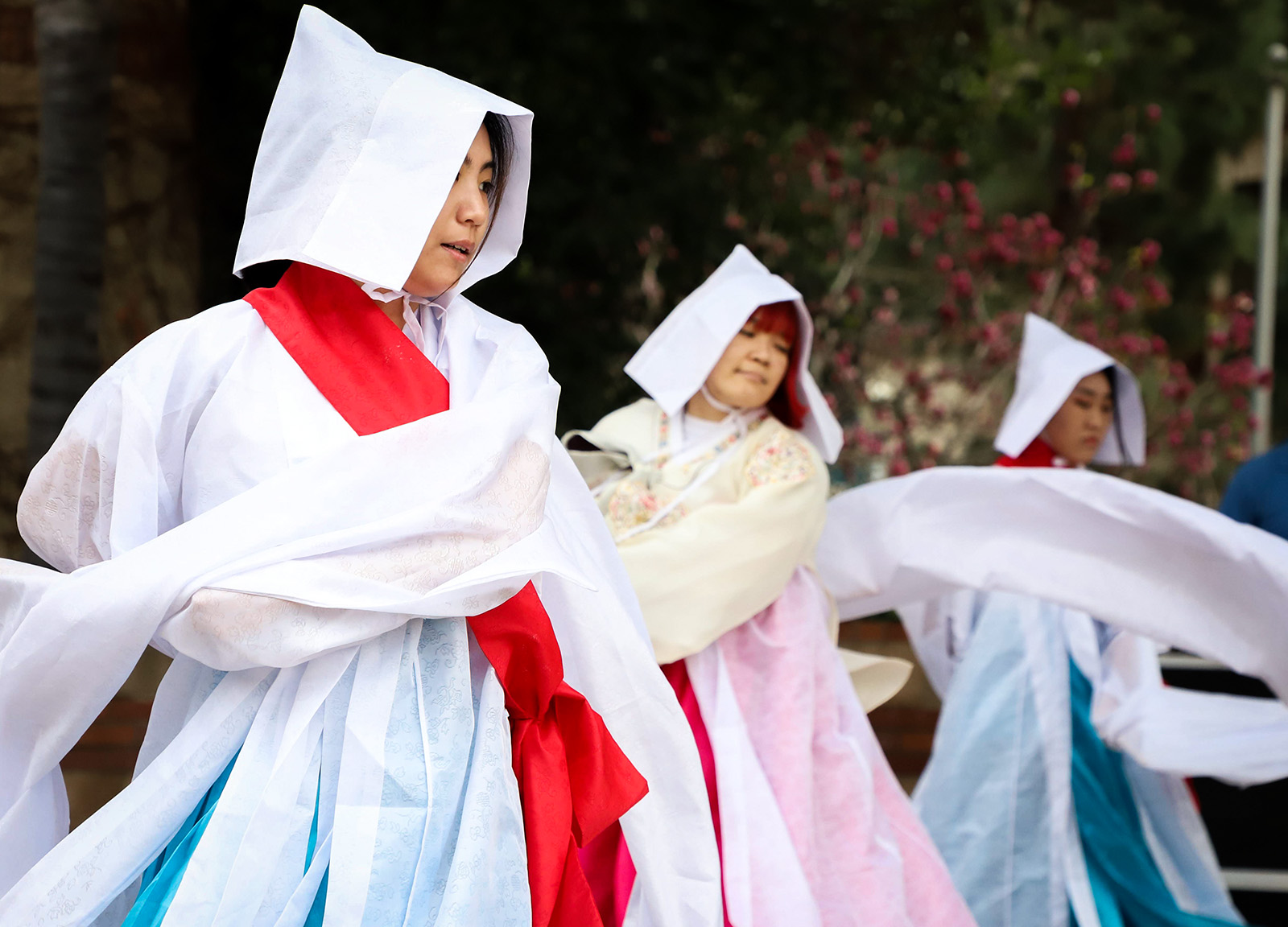Student organization hosts three-day Korean cultural awareness event

Hanoolim, a Korean cultural awareness group, hosted a celebration of Samil Day, a Korean holiday that commemorates protests against Japanese imperialism in 1919. The celebration, which was part of a three-day event that began Wednesday, included food, performances and a reenactment of the Samil Day marches. (Jocelyn Dao/Daily Bruin)
By Panagiotis Giannoulias
March 4, 2019 12:29 a.m.
Students celebrated a Korean national holiday on campus for the first time Friday to raise awareness of Korean history by performing Korean drumming, masked dances and a re-enacted march.
Hanoolim, a Korean cultural awareness group, hosted a celebration of Samil Day, also known as Independence Movement Day, a Korean holiday that commemorates the protests of the March 1st Movement against Japanese imperialism in 1919. The celebration, which was part of a three-day event that began Wednesday, and included food, performances and a re-enactment of the Samil Day marches. Hanoolim aimed to raise awareness of the holiday and of Japanese imperialism in Korea through the event, said Natalie Lee, a second-year nursing student and member of Hanoolim.
The marches began March 1, 1919, when Koreans took to the streets shouting, “Long live Korea” and “May Korea live 10,000 years,” according to Hanoolim’s Facebook event page. By the end of this year-long protest, over two million Koreans had participated and over 1,500 demonstrations had taken place.
Helena Dukovich, a fourth-year Chinese and Korean languages and cultures student and the cultural committee head of Hanoolim, said the organization aims to host more cultural events because she thinks many Korean organizations on campus are more professionally or socially focused.
“We never had this event before,” Dukovich said. “We are trying really hard to make something we are proud of and have people learn from it.”
Lee said the organization aims to emphasize the importance of Korean history instead of just focusing on modern Korean culture.
“I feel like when we have Korean representation these days it’s more based on pop culture or contemporary stuff,” Lee said. “So, what we want to do is make sure that people not only know about just the cultural aspect of it but also the historical side of it.”
Jervin Mamaid, a third-year sociology student and president of Hanoolim, said he thinks Samil Day does not receive enough attention in Los Angeles, despite there being a large Korean population in the city.
“Samil Day isn’t that represented in the Los Angeles community,” Mamaid said. “The main takeaway is that this is the first time we’ve celebrated Samil Day at UCLA.”
Lyra Kim, a third-year political science student and an event coordinator for Hanoolim, said this event aimed to not only raise awareness of Korean independence but also to show how leaders of Korean independence were connected to the United States.
“The major activists that took part in this movement were U.S. educated. They also stayed in the U.S. and helped direct the movement from here,” Kim said. “They couldn’t travel back because there was a ban.”
Hayoun Kim, a fourth-year sociology student from South Korea and the cultural advisor of Hanoolim, said he thinks the movement in 1919 was unique because students played a primary role in the marches for independence.
“The March 1st Movement was the first one which the students were the main (group),” Hayoun Kim said. “They led the march.”
Dukovich added while the movement did not immediately achieve Korean independence, it initiated the long struggle toward independence from Japan.
“They didn’t succeed that day,” Dukovich said. “It showed the desire to fight for independence.”
Lyra Kim said she thinks it is important to realize that Samil Day is significant for Korean-Americans as well, not just people living in Korea.
“We are also, in a way, representing Korean culture here, like they did back then, and I think that’s something that people forget,” she said.

